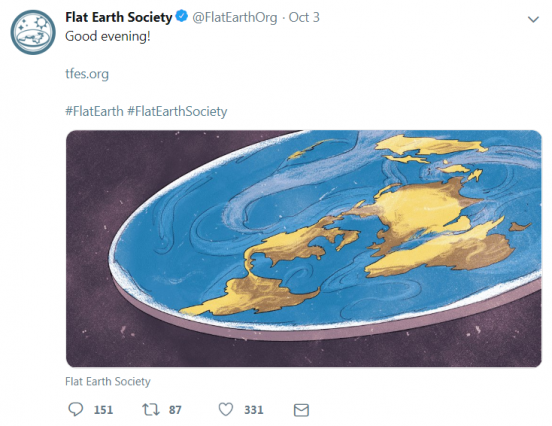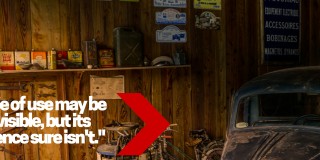When I last checked, there were 987,119 “thought leaders” on LinkedIn. Soon, there’ll be more than a million. How many of those do you trust?
“False expertise” is misidentified competence: We perceive expertise where there is none or evaluate expertise based on irrelevant factors.
False experts include legions of self-appointed “gurus” and “visionaries” who saturate social media with bad advice. But they’re not the only sources.
Our brains are hardwired to take shortcuts that bias our identification of expertise, helping charlatans thrive and warping our decision-making.
Why are we so bad at this?
Why we fall for false expertise
1. We’re bad at making rational decisions. Thinking, Fast and Slow, the seminal book by Nobel Prize–winning economist Daniel Kahneman, makes a clear case for human vulnerability in decision-making.
We like to think that we make rational, “slow” decisions. Most of the time, however, we’re using our much faster, less rational system to choose. It’s one reason we continue to fall for false expertise.
2. We want to validate our own perspective. Khalil Smith, the Practice Lead for Diversity and Inclusion at the NeuroLeadership Institute, summarizes the biases that lead us toward false expertise:
- Similarity. “People like me are better than people who aren’t like me.”
- Experience. “My perceptions of the world must be accurate.”
- Expedience. “If it feels right, it must be true.”
Because of those biases, explains University of Utah Professor Bryan Bonner, we focus on “proxies of expertise” rather than expertise itself.
Those proxies can be anything from height (we tend to elect the taller political candidate) to gregariousness in a meeting or the extracurricular activities on a resume.
3. We fall victim to the Halo Effect. Even if we initially judge someone based on real expertise, we often overextend that evaluation—a cognitive bias known as the Halo Effect.
E. L. Thorndike first demonstrated the Halo Effect in the military by showing the high correlation among soldiers’ ratings for physique, intelligence, leadership, and character.

In the modern office, if someone has great creative ideas, the Halo Effect makes us more likely to admire that same person’s copywriting or management skills.
4. We overestimate our knowledge. Some people knowingly claim expertise they don’t have. Others aren’t aware of their deficiencies. The Dunning-Kruger effect highlights how those with the least knowledge are also the least capable of recognizing their ignorance, but subtler aspects of self-assessment affect perceived expertise, too.
How much do you know about Philadelphia, Pennsylvania? What about Acadia National Park? Or Monroe, Montana? If you’re familiar with all three, you’re not alone. But you’re also mistaken: There is no Monroe, Montana.
Researchers have shown that a higher self-assessment of topic knowledge leads to a greater likelihood that we’ll claim false expertise (like knowing about a city that doesn’t exist.)
Not every motivation is malevolent—our brains may work harder to find any connection for topics we know well. But it’s nonetheless a cautionary tale about the “illusion of knowledge” or “overclaiming,” a condition to which experts are particularly vulnerable.
5. Traditional barriers to expertise have diminished. It costs less than $100 per year to run a website, and—unlike the print publishing era—no reputable editor or printing costs stand in the way of immediate, uncensored, worldwide distribution.
A conspiracy theorist may have a better-looking website (or larger Twitter following) than a renowned academic, and it’s left to the consumer to push aside those proxies.

The digital era also tempts us, David C. Baker writes, to engage in “expertise of convenience.” It takes only a few minutes to create a new webpage that targets a subset of your market, even if that market is outside of your wheelhouse.
Marketing campaigns, Baker argues, are now chalkboard specials: readily changeable menus of expertise that require no long-term commitment—unlike the 20-foot neon sign above a restaurant.
The result of these vulnerabilities is that we hire the wrong candidates, listen to the wrong people, and fail to differentiate our businesses.
How false expertise leads us to hire the wrong people
Resumes are noisy:
- The name at the top may suggest gender and ethnicity.
- A college choice may betray class status.
- Extracurriculars may create a bond—or distance—between you and a candidate.
And none of those elements has anything to do with how well that person can do the job.
Research confirms our focus on “looking glass merit,” which results from interviewers—most of whom have minimal training—judging a candidate based on similarity. In short, we seek to validate our own characteristics: Hiring someone who’s like us reinforces our own value.
Familiarity, in particular, has dangers. One of our cognitive system’s favorite shortcuts is “familiar = safe.” The “mere exposure” effect helps explain why we continue to push similar songs to the top of the Billboard charts and why high-level brand awareness can ultimately lead to a sale.
In hiring, it means that our strongest biases exist where we least expect them—with characteristics so familiar as to seem standard. Just as our brain’s craving for familiarity swings wide the door for underqualified candidates, it also blocks pathways for those from different backgrounds.
(If individual hiring biases remind you of those demonstrated by prospects during a proposal process, they should.)
Mitigating the impact of false expertise on hiring

Reduce the noise. The implementation of “blind auditions” for leading orchestras—where applicants were heard but not seen—increased female membership from just 6% to 21% in a little over two decades.
Microsoft rolled out an “Inclusive Hiring” effort that’s tailored to those who would never make it through a traditional hiring process, like exceptional coders on the autism spectrum who may not have linear employment histories or engaging interview skills.
Other companies, like Blendoor, have developed technology platforms that automatically strip out some of the “noisiest” parts of resumes.
Strengthen the signal. Reducing the noise also increases the signal. And honing that signal, Smith explains, requires advance preparation. In the case of hiring, it means asking, “What is it that we’re actually hiring for?”
Smith concedes that no single process can help organizations answer that question, but he outlined a loose order of operations that, simple as it may be, is too often ignored:
- First, define the skills and characteristics that are essential for job performance.
- Then identify the questions that you need to ask potential employees.
Even with the right people in an organization, false expertise remains a daily threat.
How false expertise elevates bad opinions and strategies
Managers and employees encounter false expertise in three ways:
- Promotions
- Meetings
- Strategy
The issues associated with promotions parallel those for hiring—an unstructured promotion process risks greater deference to false expertise.
The other sources of false expertise, however, bring their own challenges.
Meetings: Being the expert doesn’t mean you’ll be heard
Groups are superior to individuals in recognizing an answer as correct when it comes up. But when everybody in a group is susceptible to similar biases, groups are inferior to individuals, because groups tend to be more extreme than individuals. – Daniel Kahneman
As Kahneman explained in an interview, groups are overly optimistic and suppress individual dissent. (He cites the U.S. invasion of Iraq in 2003 as a classic example.) That can lead to a “risky shift”—a polarized consensus based on false expertise, or, as it’s known more commonly, groupthink.
What makes opinions stand out in a meeting? The research is divided. One study demonstrated that even when meeting attendees recognize expertise (i.e. the group knows who the most knowledgeable person is), groups take the expert-recommended path just 62% of the time.
In other words, the problem is not simply recognizing expertise but also deferring to it. How often (or loudly or persuasively) someone speaks may serve as the proxy for expertise. As Smith cautioned: “Volubility is not trust.”
In contrast, a study that reviewed audio recordings from NASA meetings found that the amount of “air time” affected the perceived influence more than the actual influence, which usually deferred to “real” expertise.
Ways to focus meetings on real expertise

The push and pull between research on System 1 (fast) and System 2 (slow) thinking won’t resolve soon. Nonetheless, there are ways to combat the impact of a particularly charismatic meeting attendee:
- Set up “if-then” plans. According to Smith, if you’re agreeing with a dominant personality (or a beautiful slide deck), then get a quieter person to paraphrase the same message after the meeting (or review the argument in plain-text notes). Is it still as persuasive?
There are other strategies, too, such as one put forth by Utah’s Bonner:
- Anonymize ideation. Write out ideas on index cards or in shared documents, then review them anonymously. You’ll judge them only on the strength of the idea, not the person pitching it.
In some ways, reducing false expertise in hiring and meeting management is easier—these are decisions and processes that happen over and over again.
It’s far harder to limit the impact of false expertise on one-time strategic decisions.
Strategy: Adding accountability to decision-making
Even if you could neutralize false expertise entirely, strategic decisions would still be wrong from time to time. Business climates change rapidly. Unexpected events occur.
More likely, you’ll fail to notice a bias, or recognize one but not know how to remove it. Strategic decisions are some of the largest decisions your organizations makes, but because each one is unique, it’s more difficult to defend them against false expertise.
Ways to focus strategic decisions on real expertise
At the very least, Smith offers, document your current decision-making to make it easier to review mistakes in the future:
- Detail your process. Write out an explicit thought process: “We decided X, which led us to conclude Y, which is why we’re going with strategy Z.”
- Incentivize awareness. Celebrate moments when team members identify flawed thinking or decision-making—encourage people to identify bias.
- Slow it down. Take a short break before making a big decision. It increases the chances of making a “slow,” System 2 decision.
- Host a “pre-mortem.” Assume your planned decision was wrong and work backward to understand why. You may uncover current biases.
The right people and right processes are critical components to take on the most challenging work—differentiating your business from those who are all too happy to claim unwarranted authority.
How to differentiate yourself in an ocean of false experts
Hiring and management are internal challenges. But the most frustrating aspect of false expertise may be its elevation of undeserving people and businesses to the top of the industry.
Differentiating your business depends on understanding how the hucksters got there and to how to fight them off.
The big business of “thought leadership”
We’ve poisoned the well. Political scientist Daniel Drezner argues that our society traded skeptical, analytical “public intellectuals” for simplistic, rah-rah “thought leaders.”
In the words of Matthew Stewart, author of The Management Myth: Why the Experts Keep Getting It Wrong, we’ve fallen for “corporate mysticism.” Why have thought leaders run amok? Because being a “thought leader” has become incredibly lucrative.
Certainly, in digital marketing, it’s a shortcut to success. Consumers don’t know a good agency from a bad one, so social media presence or a major speaking gig becomes an easy proxy.
PR professionals and marketers have recognized the potential value of that proxy and shoved their leaders into the spotlight. Some CEOs join Twitter, in other words, not because they engage honestly and regularly but because it generates leads or boosts stock prices.
When marketing goals are the primary motivator—not real expertise or a desire to share it—Minimum Viable Expertise proliferates.
How an obsession with “growth” blunts expertise
In Baker’s The Business of Expertise, he outlines a path for the development of “hard-won, noninterchangeable expertise.” Baker sees a continuum: on the left is specialization; on the right is general knowledge.
Expertise grows as you move to the left, but the number of potential clients increases as you move to the right. For example, a social media marketing agency for credit unions (Baker’s example) has tremendous expertise but limited market appeal. A generic “digital marketing agency,” on the other hand, can pitch any client but has no niche.
The biggest mistake that many make, he contends, is drawing a massive circle around all experience so that no opportunities fall outside. As Baker argues, you must have the courage to specialize to differentiate yourself and justify a price premium.
That means declining bad-fit opportunities for client work, which, in the near term, slows business growth. The challenge, of course, is that industry publications continue to laud the fastest growing companies—they hand the biggest microphone to those with the least expertise.
Here’s how to keep that from happening.
How to establish expertise for your business
1. Credentials will not rescue you.
In his book, Matthew Stewart highlights the proliferation of MBAs and laments the shallowness of course offerings. (McKinsey admitted that its MBA-less employees “are at least as successful” as those with credentials.) As Stewart argues, an MBA is training; experience is education.
Smith carried the point forward: Credentials can become part of the false expertise marketplace—a degree doesn’t guarantee job performance and, in some cases (like an obsession with Ivy League grads), may be a distraction.
For marketing, in particular, credentials are lacking. Credentials successfully separated doctors from snake-oil salesmen, but, as Smith noted, that process took decades, and the stakes for marketing likely will never justify such a rigorous framework.
2. Focus on process, not just results.
Does your website highlight thinking or implementation? Baker asks the same question in his book. After all, in the marketing world, what website doesn’t have case studies with triple-digit growth or a stack of impressive client logos below the fold?
“The past is not always a great predictor,” noted Smith. “You have to show your work.” That commitment to detailing process, not just results, is key to separating real experts from false ones.
“There’s a world of difference between experienced UX designers and people who read a blog post about it,” explained DePalma Studios’ Zach Watson. “One of the most important is having a proven research process.” (You can find ours here.)
“However,” Watson continued, “Most of our target market doesn’t understand this, so we’ve made it a huge part of our content strategy. By educating our audience on the critical nature of user research, we’re putting distance between us and other agencies that use graphic designers to do UX work.”
3. Challenge false expertise.
“You have an opportunity to draw a distinction between bad operators and what you do,” Smith explained. How? Educate and undermine. It’s not enough to share best practices—you must also call out false expertise.
As Smith envisioned, “Whether you buy from us or not, let’s educate you with what ‘good’ looks like. I may not get your business right now, but you’ll understand that I’m doing this for your benefit and my benefit. It’s mutually beneficial.”
It’s also the long play: To push experts forward and bury its false prophets, you must change consumer thinking about your entire industry.
4. Establish authority first.
Widespread false expertise can also undermine preferred marketing strategies. Dr. Nicole Prause, a neuroscience researcher, has continually battled an array of pseudo-science that plagues her field of sexual physiology.
For her company, Liberos, she abandoned a preferred, casual tone (such as using her first name) to keep signals of expertise at the forefront. Prause also focuses on outreach to credible media sources and cites media interviews on her website—a typically unnecessary approach for a neuroscience laboratory engaged in academic research.
Conclusion
Rooting out false expertise can improve the hiring process by reducing the “noise” of resumes. In meeting management, anonymous ideation or post-meeting fact-checking can diminish the influence of a persuasive presentation. And a pre-mortem on strategic decisions can spot biases you’ve so far ignored.
Improvements in each of those areas make it easier for you to hone your real expertise and differentiate your business from the hundreds (or thousands) of “thought leaders” whose haphazard growth, they believe, conveys expertise.
When I spoke with Smith, he was waiting on a flight at Dulles. He relayed an example unfolding before him. In this instance, the “experts” were potential security threats: “TSA is constantly trying to read behavior. But are they looking for a certain demographic or style? The way someone looks or sounds? Are they doing due diligence?”
Combating false expertise—in your head or others’—isn’t easy. “You can’t do this kind of rigorous decision-making for everything,” conceded Smith. If you’re hungry, he implored, just pick a restaurant.
“But do the hard work and avoid lazy decisions.”


Thank you Derek for sharing.
I really like these points.
“we want to validate our own perspective” is so familiar as is the
“we like to think we are rational”
this is a trap even more severe for people who view themselves as intellectuals or “smart”.
Great article. Love the expertise trap that you pointed out.
It left me thinking about ignorance. I wonder if there any benchmark to test for your knowledge/expertise especially in hiring.
Thanks, Bryan.
With regard to hiring, I think humility wins the day: We all fall victim to the search for “proxies of expertise,” and the best we can do is to try to eliminate the “noise” associated with resumes and interviews. It also helps if, in advance, you identify the characteristics that are most critical to job performance.
You are right. There is a lot of signalling strategies that people use to judge. But some of it might be corrupted. Agree on the point on identification and backward engineering the hiring process.
As a first-time business owner, I think the hard part is identifying what you need.